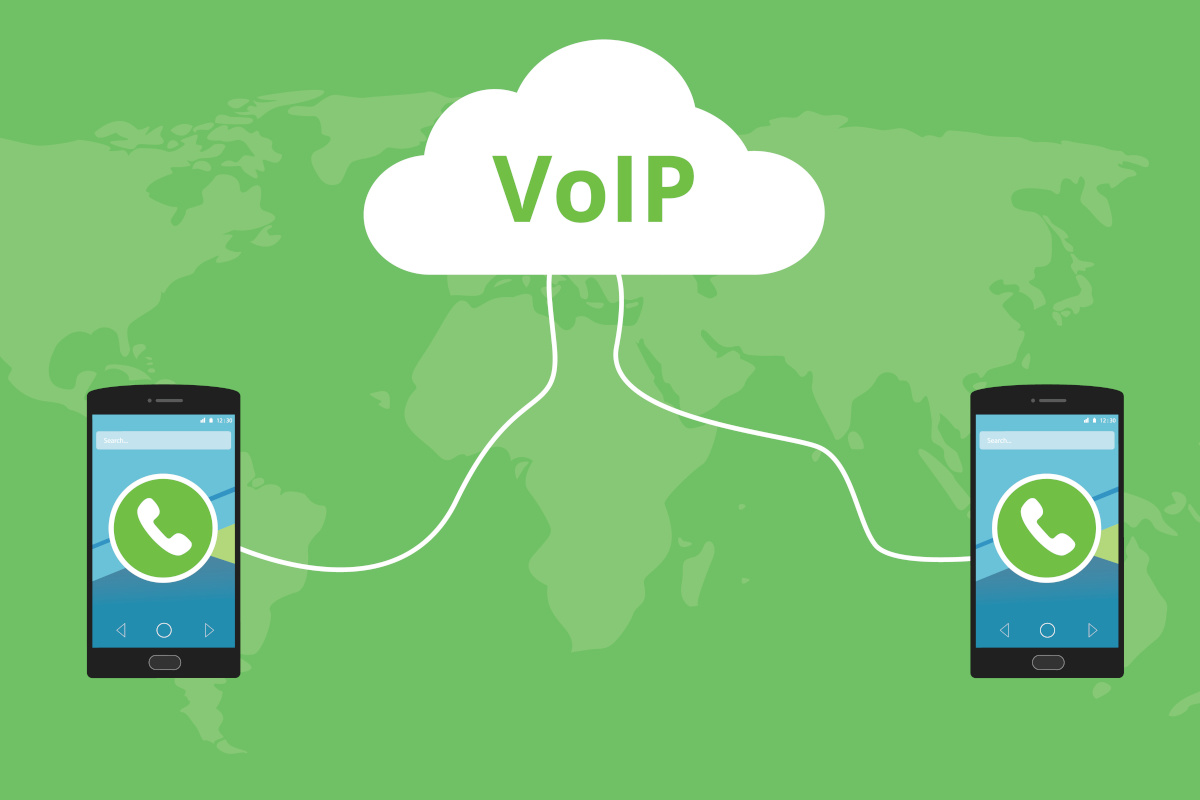How Do VoIP Phones Improve Employee Mobility?
December 2nd, 2023 by admin

Employee mobility refers to the ability of employees to work from various locations outside the traditional office setting. This could include working from home, on the road, or at different office locations. Combined with VoIP, the connection possibilities become endless, offering employees the ability to stay in touch with clients and team members all the time.
Here's an example to help you understand how VoIP phones improve mobility:
Samuel, a sales representative for a global company, needs to travel frequently to meet clients and attend conferences. With traditional landline phones, staying connected on the go presents a challenge. However, the company has implemented a VoIP phone system, providing Samuel with a seamless communication experience.
VoIP systems often offer softphone applications that can be installed on laptops, tablets, and smartphones. Samuel downloads the company's VoIP app on his smartphone, allowing him to use his business phone number and access all the features of the office phone system.
Whether Samuel is in a hotel room, airport lounge, or at a client's office, he can make and receive calls as if he were at his desk in the office. The VoIP system ensures that his business phone number remains consistent, presenting a professional image to clients and colleagues.
In situations where Samuel cannot answer a call, the VoIP system allows for intelligent call routing and forwarding. Calls to his office number are automatically redirected to his mobile phone or another designated number, ensuring that he never misses important calls, even when on the move.
Key VoIP Features That Contribute to Employee Mobility
Flexibility with Devices
VoIP allows users to make calls from a variety of devices, including laptops, smartphones, tablets, and even traditional desk phones with the use of adapters. This flexibility ensures that employees can stay connected regardless of their location, promoting remote work and enhancing overall productivity.
Presence Management
Presence management is a feature that indicates an employee's status in real-time, showing whether they are available, busy, or away. For mobile employees, this feature is invaluable as it helps colleagues and clients know the best times to reach out. It minimizes the likelihood of disruptions and promotes accountability.
International Roaming Cost Savings
For businesses with a global footprint, VoIP offers cost savings on international calls. Mobile employees traveling abroad can use VoIP to make calls over Wi-Fi or mobile data networks, avoiding expensive international roaming charges associated with traditional phone systems.
Voicemail to Email
VoIP systems often include voicemail-to-email functionality. This feature transcribes voicemail messages into text and sends them directly to the recipient's email inbox. For employees who are frequently on the move, this ensures that they can quickly and discreetly check voicemail messages without having to dial into a voicemail system.
Unified Communications
VoIP integrates seamlessly with unified communications (UC) platforms, bringing together various communication channels such as voice, video, messaging, and collaboration tools. This integration enhances employee mobility by providing a centralized platform for all communication needs. No matter where they are, they can access the platforms through a unified interface.
Cost of a VoIP Service
Many VoIP service providers offer subscription-based plans where you pay a fixed monthly fee for a set number of minutes or unlimited calling. This is often more cost-effective for businesses with consistent call volumes.
Different VoIP service providers have different pricing structures. Some popular providers include RingCentral, 8x8, Vonage, and Zoom. Prices may vary based on the reputation of the provider and the additional features they offer.
The number of extensions you need for your business also influences the cost. Some providers offer tiered pricing, where the per-user cost decreases as the number of users increases. As for international calling, sometimes, this feature is included in the plan, and other times, you are charged for it separately.
Pros and Cons of VoIP Related to Employee Mobility
Pros
- Allows employees to make and receive calls from anywhere with an internet connection.
- With VoIP, there is no need for separate networks for voice and data, reducing infrastructure costs.
- Businesses can add or remove lines as needed.
Cons
- In areas with poor connectivity, employees may experience dropped calls or audio quality issues.
- The initial setup cost for VoIP is significant. Upgrading the network infrastructure and providing necessary training for employees might require a considerable upfront investment.
- Scaling up requires additional investments in infrastructure and bandwidth to maintain call quality and reliability.
In conclusion, adopting VoIP to improve employee mobility is a smart move for a business trying to grow. The cost-effectiveness of VoIP cannot be overstated. Traditional phone systems often incur high costs associated with hardware, installation, and maintenance. In contrast, VoIP operates over the internet, eliminating the need for elaborate infrastructure and reducing overall expenses.
Experience crystal-clear voice quality and reliable communication that transcends traditional phone lines with Techno Link. Our VoIP services ensure that your team stays connected seamlessly, fostering collaboration and productivity. Request a quote today to find out the cost of VoIP service for your business.
If you want to learn more about how VoIP Phones Improve Employee Mobility, contact us today.
Posted in: Products

